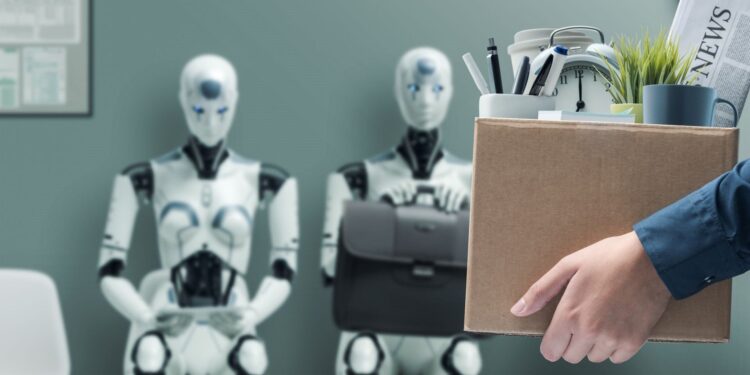The work environment is experiencing a significant shift, as artificial intelligence (AI) stands ready to take over conventional positions across various sectors. Klarna’s CEO, Sebastian Siemiatkowski, has been in the spotlight for his claim that AI is capable of executing most tasks that were once performed by human staff.
Although the fintech leader known for its “buy now, pay later” model is not fully substituting its human workforce with machines, it has paused hiring for non-critical roles and is adopting AI to optimize its operations.
Klarna’s workforce reconfiguration: Prioritizing automation over growth
Siemiatkowski disclosed that Klarna has reduced its workforce considerably in the past year, shrinking from 4,500 to 3,500 employees due to natural attrition. He attributed this reduction to advancements in AI that enable the firm to manage tasks traditionally performed by human workers. “We halted hiring around a year ago,” he mentioned during a Bloomberg TV interview. “I believe that AI is already capable of performing all the functions that we humans fulfill. The real question is how we choose to implement and utilize it.”
Nevertheless, Klarna has not completely eradicated all human jobs. The organization continues to fill critical positions, mainly in engineering, to sustain its operations. Klarna indicates that this transition is a strategic move to emphasize AI integration rather than merely expanding its workforce.
The possibilities and limitations of AI
Siemiatkowski’s remarks highlight an increasing trend among various industries to adopt AI capabilities, although this shift comes with its own set of challenges. While AI can enhance efficiency in areas like data processing, customer support, and even some creative endeavors, it does have its constraints. Many firms, including Klarna, still depend on human teams for positions that require judgment, emotional intelligence, and intricate problem-solving.
For instance, despite the rapid adoption of AI, many sectors are proceeding with caution regarding widespread implementation. TechCrunch reports that the majority of organizations are integrating and utilizing AI at a noticeably slow pace, despite the buzz surrounding it, mainly due to concerns regarding costs, ethical dilemmas, and practical application issues.
The wider repercussions for employment in the age of AI
The consequences of Klarna’s strategy have ramifications that extend beyond the fintech sector. A 2023 McKinsey report projected that by 2030, automation could take over tasks equating to 30% of U.S. working hours, leading to the displacement of millions in the workforce.
Positions in customer service, human resources, and various administrative fields are especially at risk. Nevertheless, the same study indicated that AI could generate new job opportunities, particularly in technology and AI oversight, potentially counterbalancing some of these job losses.
Finding equilibrium between AI and human creativity
Klarna’s strategy underscores the importance of achieving a balance between utilizing AI for efficiency and maintaining the human aspect of work. While automation can lower expenses and enhance productivity, excessive reliance on AI may estrange both employees and customers.
Organizations need to implement AI ethically, ensuring that the advantages are distributed fairly among workers. Klarna’s approach of reinvesting financial savings into employee compensation presents one potential strategy for sustaining morale during periods of transition.
Looking forward: The evolving landscape of work
Klarna’s transition to AI-driven operations provides a preview of the future work environment. However, it is advisable for businesses to utilize automation as a complement to human efforts rather than as a replacement. This entails adopting AI mindfully, ensuring ethical applications and preparing employees for emerging opportunities within a transforming digital landscape. As AI continues to influence the workplace, its effectiveness will hinge on how well organizations can harmonize technological advancements with inherent human creativity and compassion.


